Charles E W Bean, Diaries, AWM38 3DRL 606/248/1 - 1917 - 1931 - Part 8
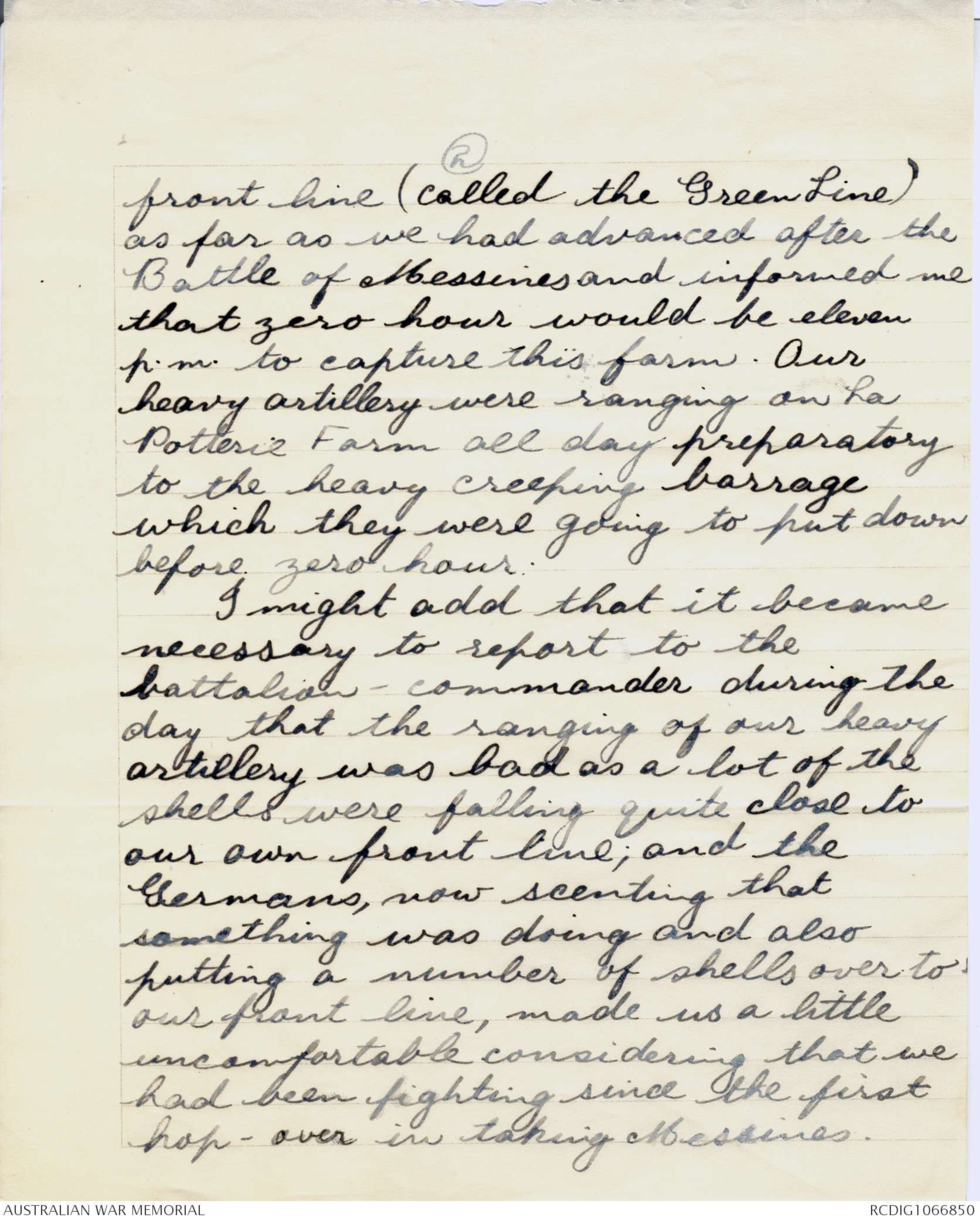
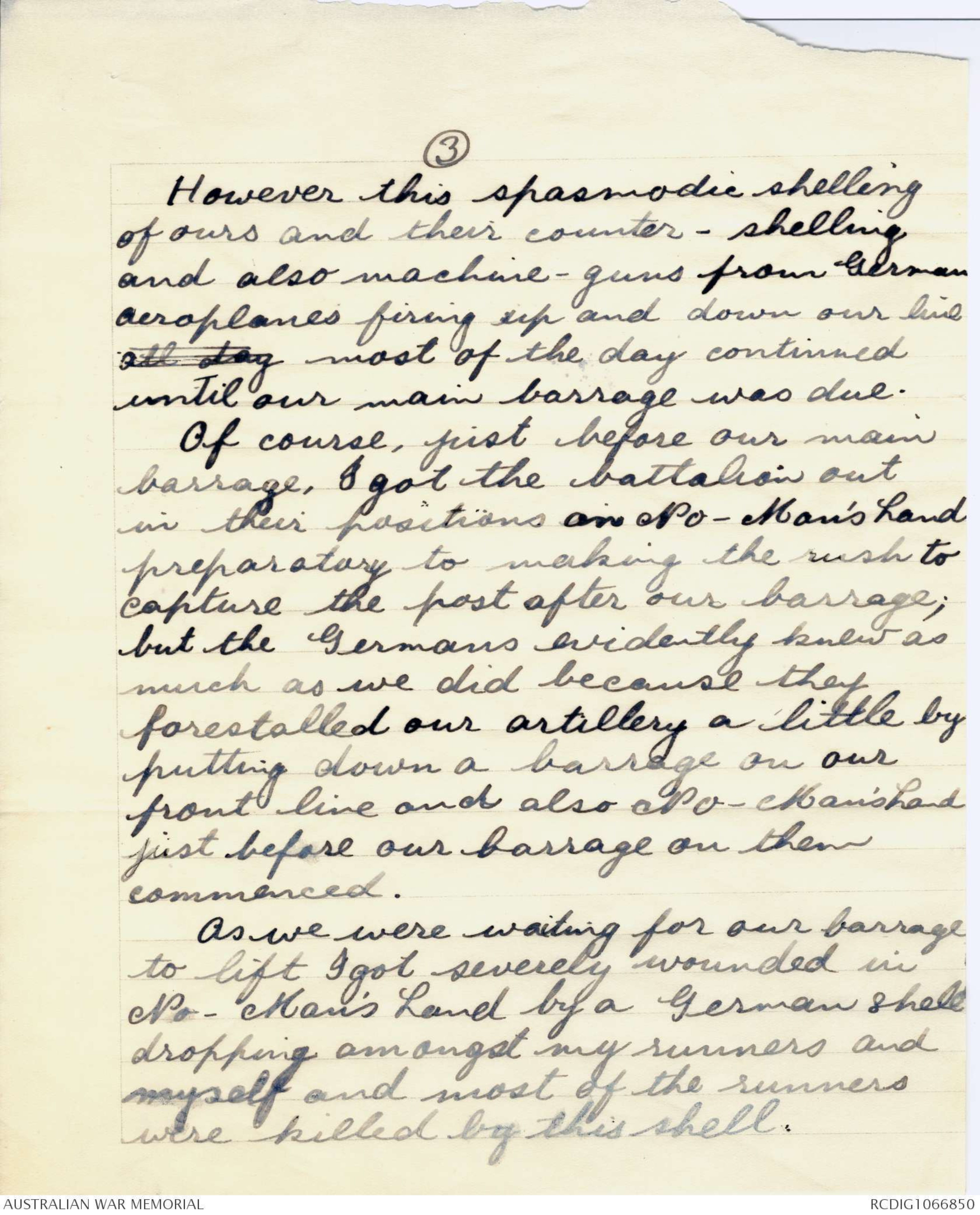
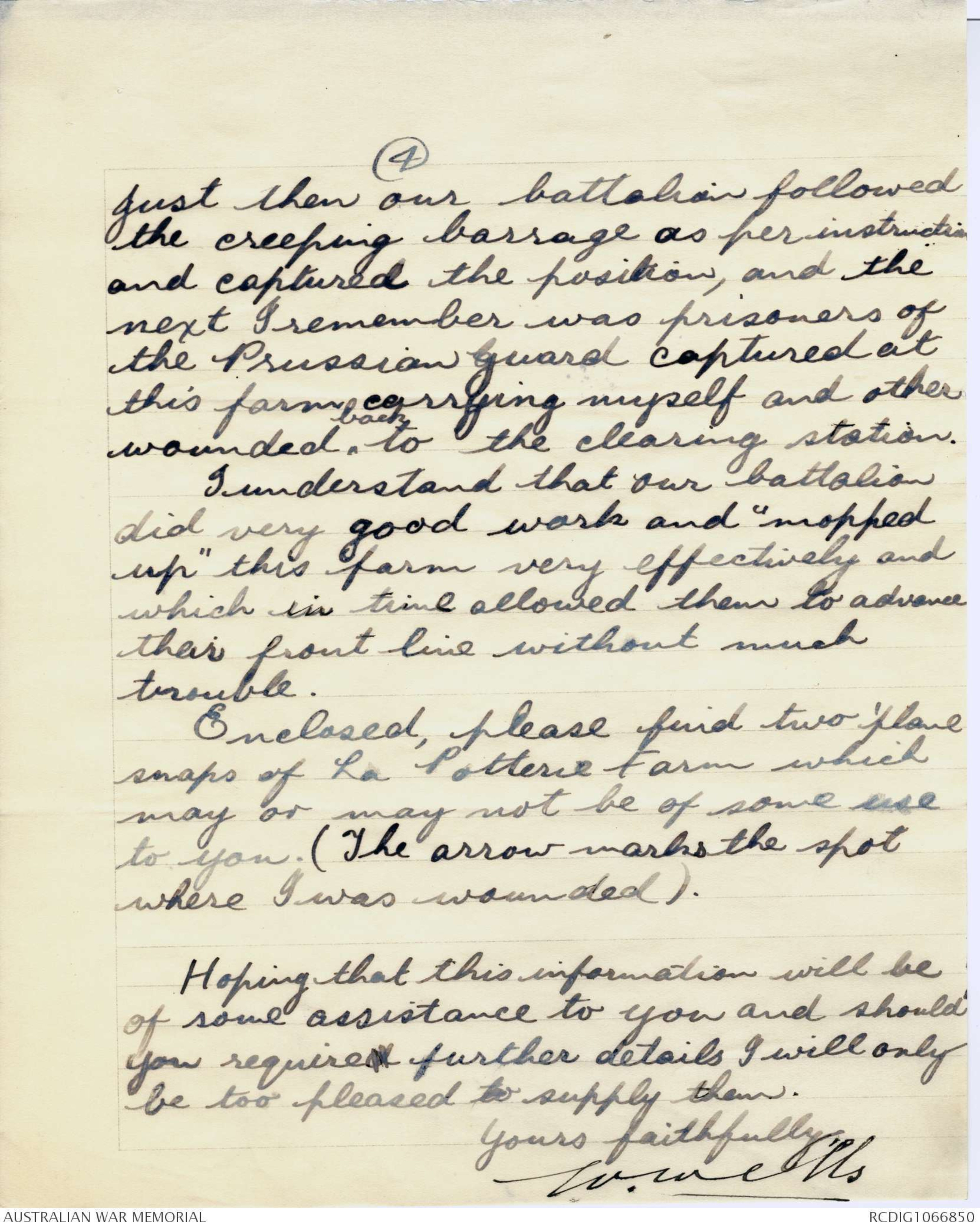
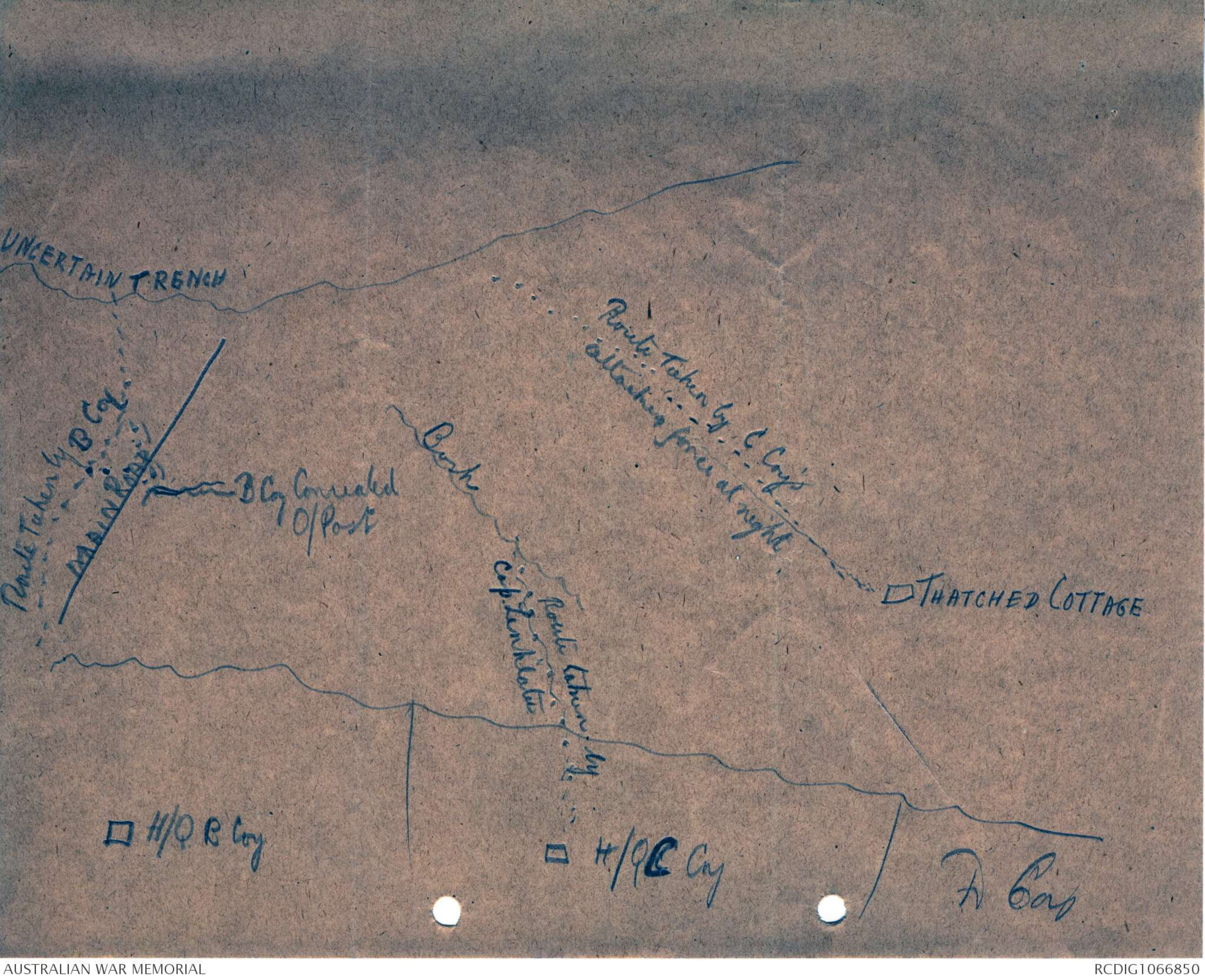
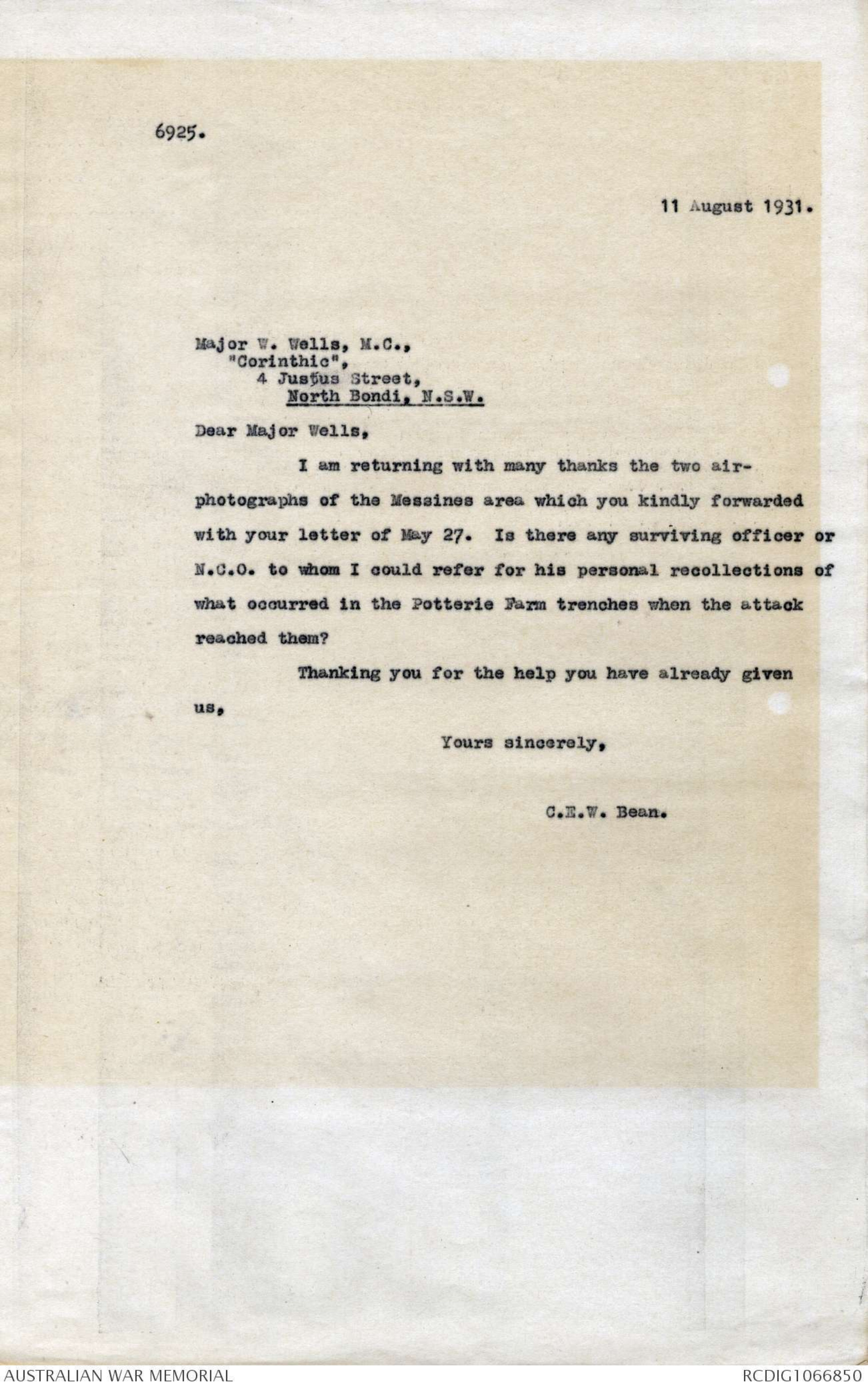
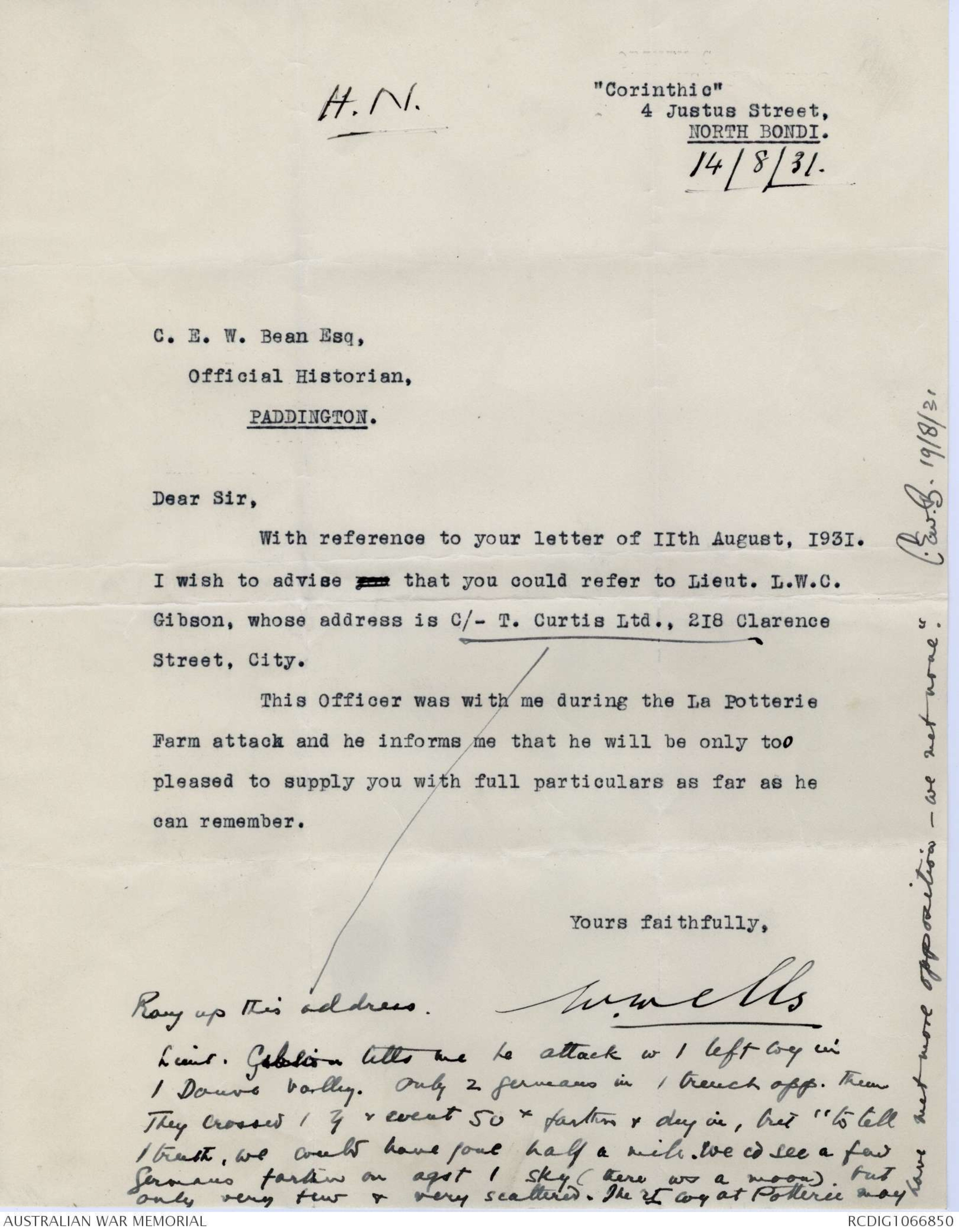
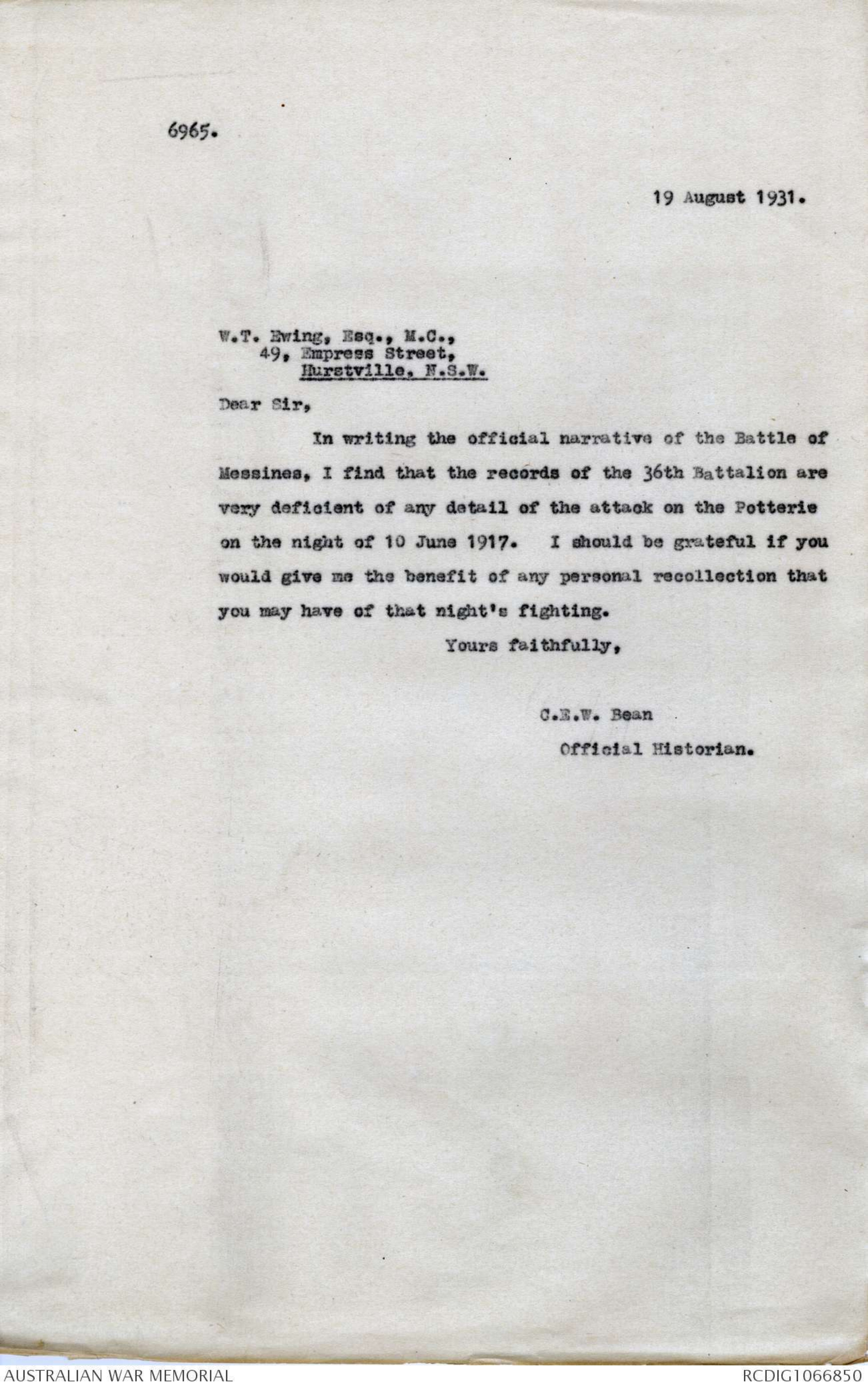
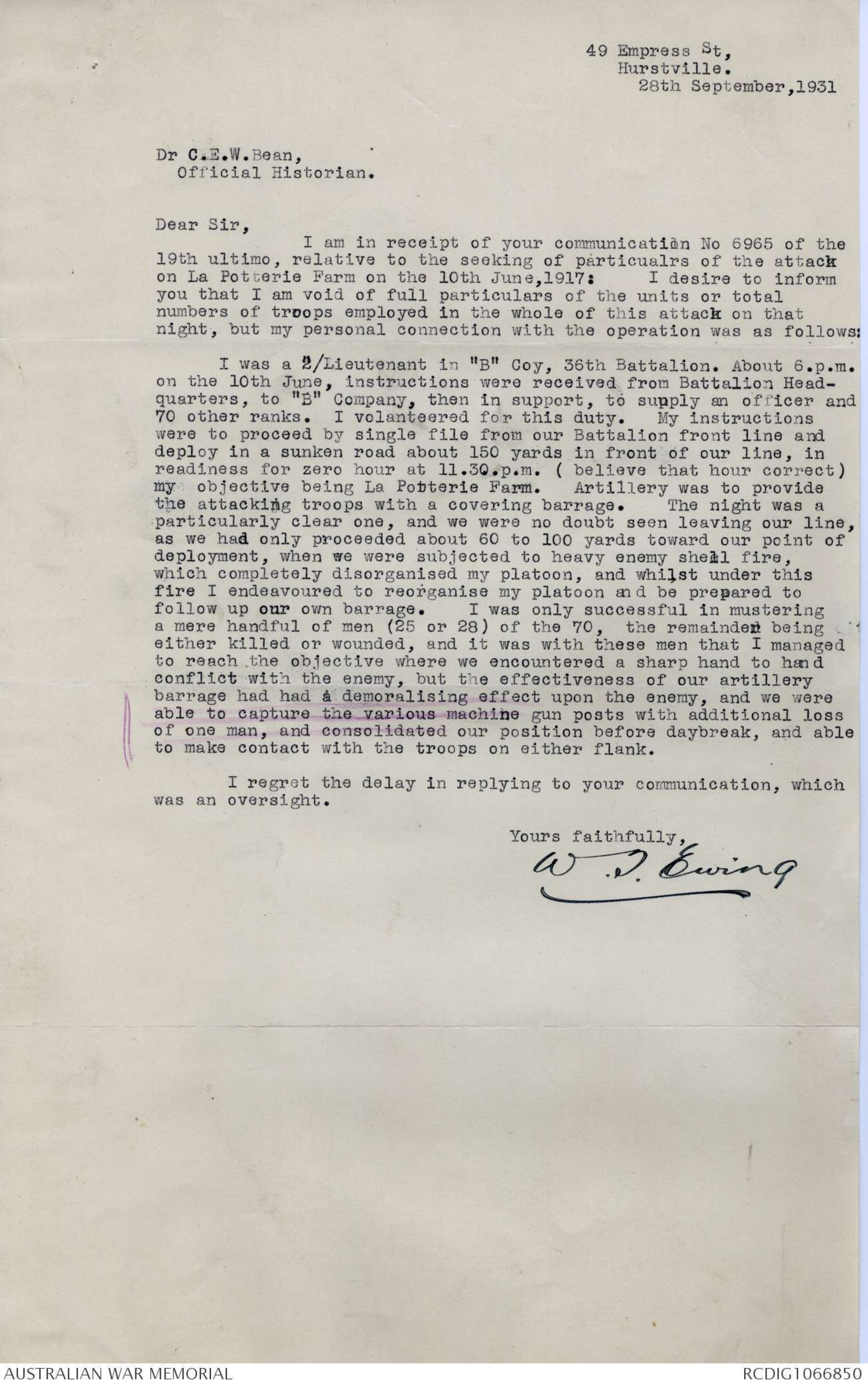
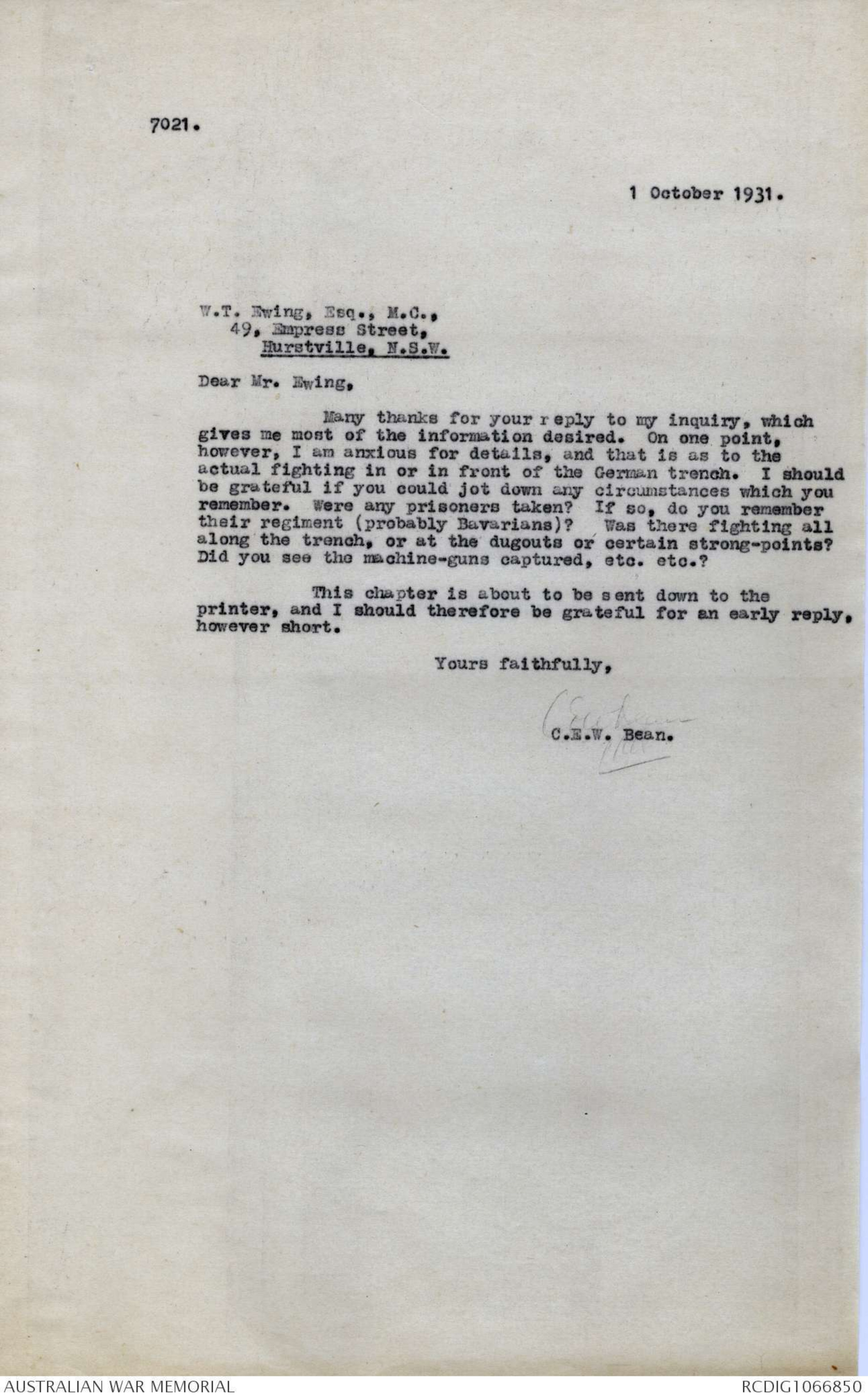
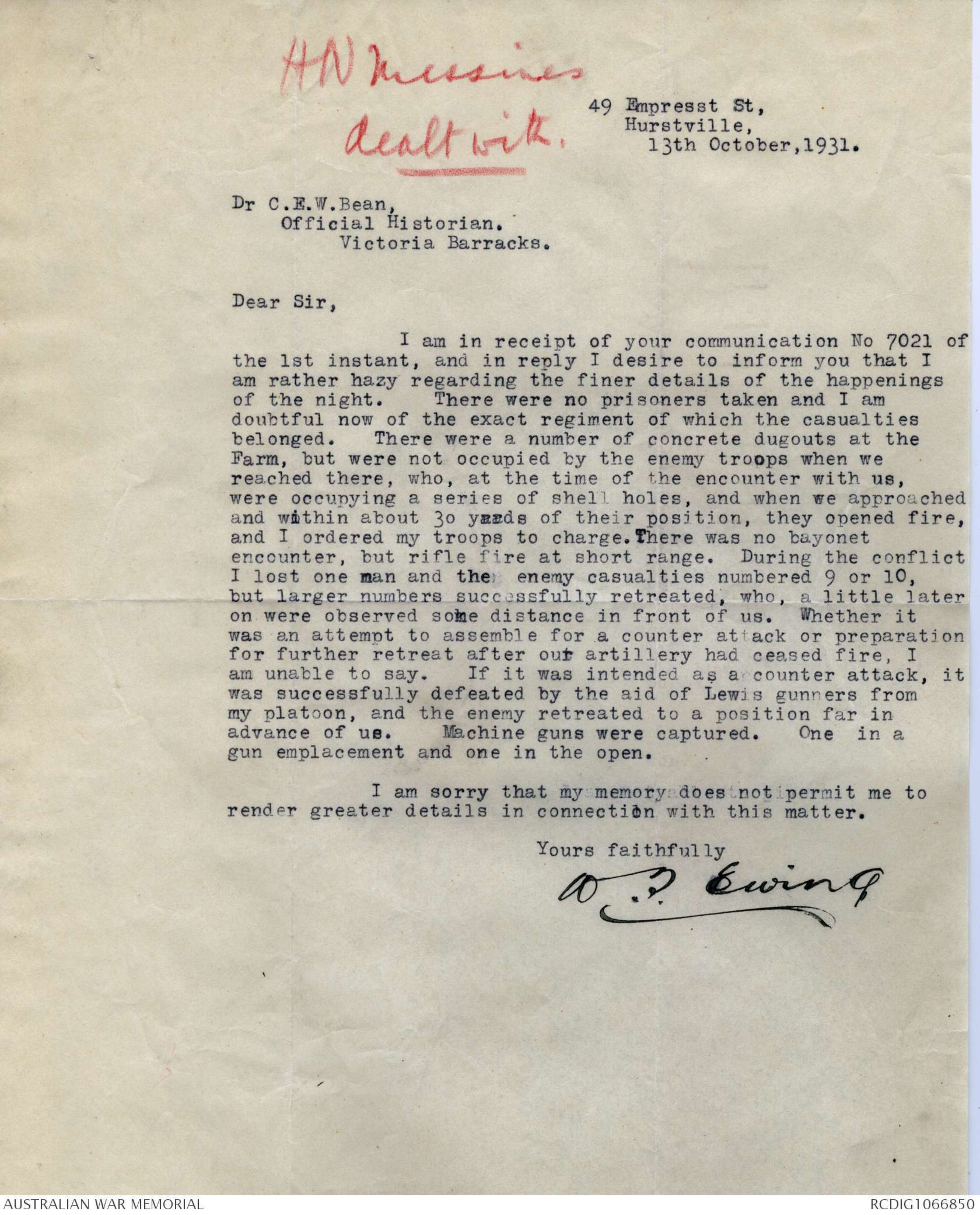
2
front line (called the Green Line)
as far as we had advanced after the
Battle of Messines and informed me
that zero hour would be eleven
p.m. to capture this farm. Our
heavy artillery were ranging on La
Potterie Farm all day preparatory
to the heavy creeping barrage
which they were going to put down
before zero hour.
I might add that it became
necessary to report to the
battalion-commander during the
day that the ranging of our heavy
artillery was bad as a lot of the
shells were falling quite close to
our own front line; and the
Germans, now scenting that
something was doing and also
putting a number of shells over to
our front line, made us a little
uncomfortable considering that we
had been fighting since the first
hop-over in taking Messines.
3
However this spasmodic shelling
of ours and their counter-shelling
and also machine-guns from German
aeroplanes firing up and down our lineall day most of the day continued
until our main barrage was due.
Of course, just before our main
barrage, I got the battalion out
in their positions on No-Man's Land
preparatory to making the rush to
capture the post after our barrage;
but the Germans evidently knew as
much as we did because they
forestalled our artillery a little by
putting down a barrage on our
front line and also No-Man's Land
just before our barrage on them
commenced.
As we were waiting for our barrage
to lift I got severely wounded in
No-Man's Land by a German shell
dropping amongst my runners and
myself and most of the runners
were killed by this shell.
4
Just then our battalion followed
the creeping barrage as per instructio
and captured the position, and the
next I remember was prisoners of
the Prussian Guard captured at
this farm carrying myself and other
wounded ^back to the clearing station.
I understand that our battalion
did very good work and "mopped
up" this farm very effectively and
which in time allowed them to advance
their front line without much
trouble.
Enclosed, please find two 'plane
snaps of La Potterie Farm which
may or may not be of some use
to you. (The arrow marks the spot
where I was wounded).
Hoping that this information will be
of some assistance to you and should
you required further details I will only
be too pleased to supply them.
Yours faithfully
W. Wells
Diagram - see original document
6925.
11 August 1931.
Major W. Wells, M.C.,
"Corinthic",
4 Justus Street,
North Bondi, N.S.W.
Dear Major Wells,
I am returning with many thanks the two air-
photographs of the Messines area which you kindly forwarded
with your letter of May 27. Is there any surviving officer or
N.C.O. to whom I could refer for his personal recollections of
what occurred in the Potterie Farm trenches when the attack
reached them?
Thanking you for the help you have already given
us,
Your sincerely,
C.E.W. Bean.
H.N.
"Corinthic"
4 Justus Street,
NORTH BONDI.
14/8/31.
C. E. W. Bean Esq,
Official Historian,
PADDINGTON.
Dear Sir,
With reference to your letter of 11th August, 1931.
I wish to advise you that you could refer to Lieut. L.W.C.
Gibson, whose address is C/ - T. Curtis Ltd., 218 Clarence
Street, City.
This Officer was with me during the La Potterie
Farm attack and he informs me that he will be only too
pleased to supply you with full particulars as far as he
can remember.
Yours faithfully,
W.Wells
Rang up this address.
Lieut. Gibson tells me he attack w / left coy in
/ Douve Valley. Only 2 Germans in / trench opp. them
They crossed / trench & went 50 x farther & dug in, but "to tell
/ truth, we could have gone half a mile. We cd see a few
Germans farther on agst / sky (there ws a moon). but
only very few & very scattered. The rt coy at Potterie may have met more opposition - we met none."C.E.W.B. 19/8/31
6965.
19 August 1931.
W.T. Ewing, Esq., M.C.,
49, Empress Street,
Hurstville. N.S.W.
Dear Sir,
In writing the official narrative of the Battle of
Messines, I find that the records of the 36th Battalion are
very deficient of any detail of the attack on the Potterie
on the night of 10 June 1917. I should be grateful if you
would give me the benefit of any personal recollection that
you may have of that night's fighting.
Yours faithfully,
C.E.W. Bean
Official Historian.
49 Empress St,
Hurstville.
28th September, 1931
Dr C.E.W. Bean,
Official Historian.
Dear Sir,
I am in receipt of your communication No 6965 of the
19th ultimo, relative to the seeking of particualrs of the attack
on La Potterie Farm on the 10th June,1917: I desire to inform
you that I am void of full particulars of the units or total
numbers of troops employed in the whole of this attack on that
night, but my personal connection with the operation was as follows:
I was a 2/Lieutenant in "B" Coy, 36th Battalion. About 6.p.m.
on the 10th June, instructions were received from Battalion
Headquarters, to "B" Company, then in support, to supply an officer and
70 other ranks. I volanteered for this duty. My instructions
were to proceed by single file from our Battalion front line and
deploy in a sunken road about 150 yards in front of our line, in
readiness for zero hour at 11.30.p.m. ( believe that hour correct)
my objective being La Potterie Farm. Artillery was to provide
the attacking troops with a covering barrage. The night was a
particularly clear one, and we were no doubt seen leaving our line,
as we had only proceeded about 60 to 100 yards toward our point of
deployment, when we were subjected to heavy enemy shell fire,
which completely disorganised my platoon, and whilst under this
fire I endeavoured to reorganise my platoon and be prepared to
follow up our own barrage. I was only successful in mustering
a mere handful of men (25 or 28) of the 70, the remainder being
either killed or wounded, and it was with these men that I managed
to reach the objective where we encountered a sharp hand to hand
conflict with the enemy, but the effectiveness of our artillery
barrage had had a demoralising effect upon the enemy, and we were
able to capture the various machine gun posts with additional loss
of one man, and consolidated our position before daybreak, and able
to make contact with the troops on either flank.
I regret the delay in replying to your communication, which
was an oversight.
Yours faithfully,
W.T. Ewing
7021.
1 October 1931.
W.T. Ewing, Esq., M.C.,
49, Empress Street,
Hurstville, N.S.W.
Dear Mr. Ewing,
Many thanks for your reply to my inquiry, which
gives me most of the information desired. On one point,
however, I am anxious for details, and that is as to the
actual fighting in or in front of the German trench. I should
be grateful if you could jot down any circumstances which you
remember. Were any prisoners taken? If so, do you remember
their regiment (probably Bavarians)? Was there fighting all
along the trench, or at the dugouts or certain strong-points?
Did you see the machine-guns captured, etc. etc.?
This chapter is about to be sent down to the
printer, and I should therefore be grateful for an early reply,
however short.
Yours faithfully,
C.E.W. Bean.
[*HNMessines
dealt with.*]
49 Empresst St,
Hurstville,
13th October, 1931.
Dr C.E.W.Bean
Official Historian.
Victoria Barracks.
Dear Sir,
I am in receipt of your communication No 7021 of
the 1st instant, and in reply I desire to inform you that I
am rather hazy regarding the finer details of the happenings
of the night. There were no prisoners taken and I am
doubtful now of the exact regiment of which the casualties
belonged. There were a number of concrete dugouts at the
Farm, but were not occupied by enemy troops when we
reached there, who, at the time of the encounter with us,
were occupying a series of shell holes, and when we approached
and within about 30 yards of their position, they opened fire,
and I ordered my troops to charge. There was no bayonet
encounter, but rifle fire at short range. During the conflict
I lost one man and the enemy casualties numbered 9 or 10,
but larger numbers successfully retreated, who, a little later
on were observed some distance in front of us. Whether it
was an attempt to assemble for a counter attack or preparation
for further retreat after our artillery had ceased fire, I
am unable to say. If it was intended as a counter attack, it
was successfully defeated by the aid of Lewis gunners from
my platoon, and the enemy retreated to a position far in
advance of us. Machine guns were captured. One in a
gun emplacement and one in the open.
I am sorry that my memory does not permit me to
render greater details in connection with this matter.
Yours faithfully
W.T Ewing
 Sandy Mudie
Sandy MudieThis transcription item is now locked to you for editing. To release the lock either Save your changes or Cancel.
This lock will be automatically released after 60 minutes of inactivity.